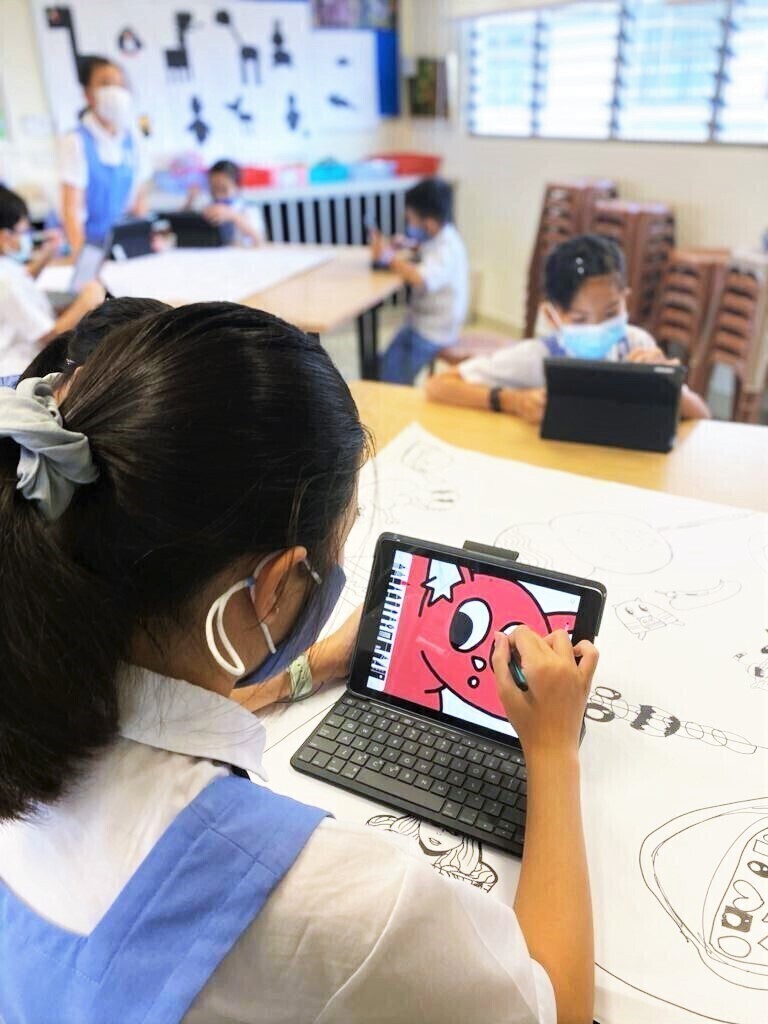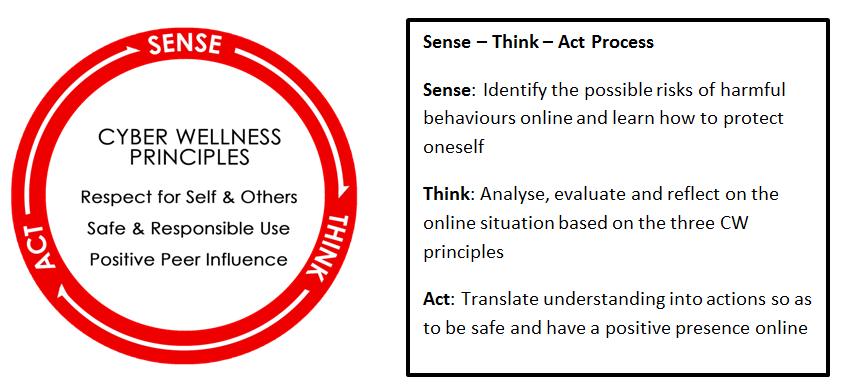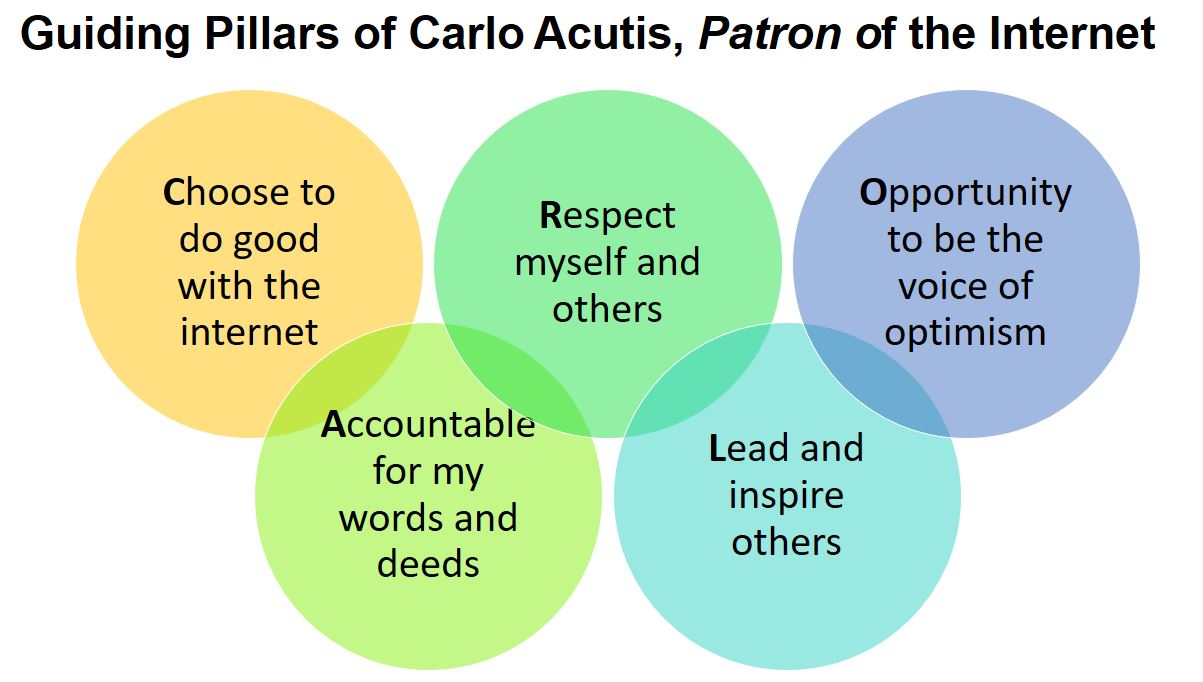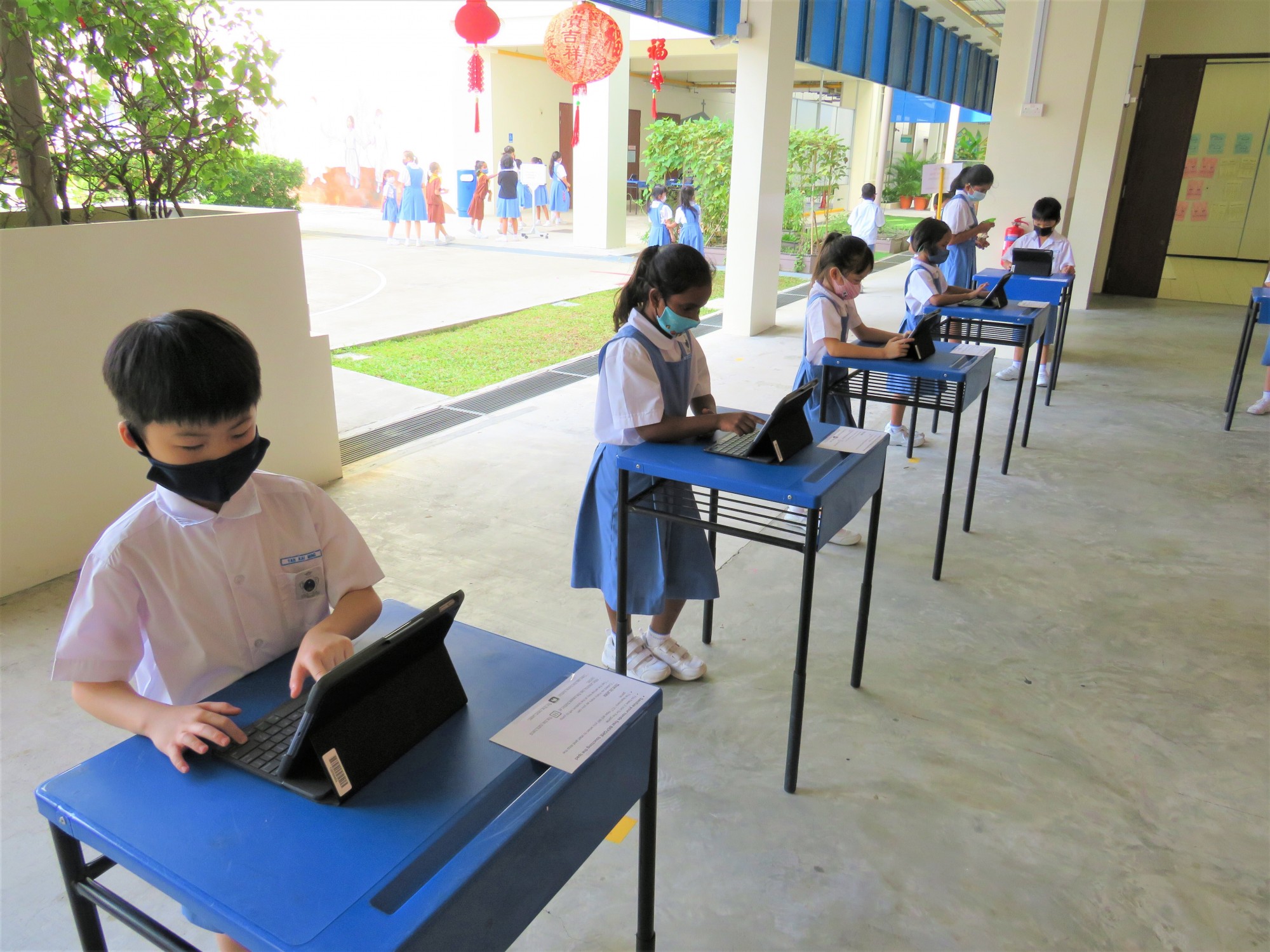Information and Communication Technology
Information and Communication Technology
⎯ David Warlick
The ICT Department in CCPS aims to nurture a community of future-ready Canossians who have the competencies, in both aptitude and attitude, to navigate the increasingly technology-driven world, through
- Meaningful and purposeful use of digital technologies to enrich teaching and learning in total school-wide curriculum
- Values-centric cyber wellness curriculum to develop discerning users who demonstrate respect and influence peers positively in the cybersphere, and use technology in a safe and responsible manner
- Building capacity of staff in the use of digital technologies through professional development programmes
- Efficient and robust ICT infrastructure and support for staff and children
ICT in Teaching and Learning - Total Curriculum Integration

In CCPS, digital technologies are meaningfully and purposefully integrated in the total curriculum to design a range of learning experiences for children to develop the knowledge, skills and disposition of future-ready learners. Teachers leverage on technology to creates a more participatory, connected and reflective classroom that makes learning more engaging, active and personalised.
Children are also exposed to different learning experiences with technology. The main learning platform is MOE Singapore Student Learning Space (SLS), which provides a safe and secure space for children to access a wide repertoire of learning materials created by MOE teachers.
Children are also exposed to different learning technologies such as G Suite (Google), Nearpod, Classkick, Padlet, Kahoot, and even Augmented Reality platforms. Our teachers select appropriate technological tools based on pedagogical affordance to enhance learning processes, allowing children to acquire knowledge, collaborate with each other, discuss and inquire ideas, practice learning, and even produce and create with technology.
Cyber Wellness@CCPS
⎯ Mark Richardson
Cyber Wellness (CW) refers to the positive well-being of Internet users. It involves an understanding of online behaviour and awareness of how to protect oneself in cyberspace. It is important for children to tap on the potential of the Internet as well as to be aware of the dangers involved in their interaction with the cyber world. When navigating cyberspace, children should demonstrate respect for self and others and practise safe and responsible use. Children should also be a positive peer influence by harnessing technology for collaboration, learning and productivity, as well as advocating the positive use of technology for the good of the community.
In CCPS, our cyber wellness curriculum anchors strongly on developing the right values to navigate the cyber landscape.
Based on MOE Cyber Wellness framework (Figure 1), the school has designed suitable cyber wellness lessons and programmes, anchoring on our school values of Charity, Humility, Forgiveness and Faith, as well as on the guiding pillars of Carlo Acutis, Patron Saint of the Internet (Figure 2).


Our Cyber Wellness education also includes lessons during FTGP (Form Teacher Guidance Period), recess programmes, and assembly talks on Cyber Safety and other cyber wellness related issues, which include cyberbullying, online scams, cyber security and differentiating between real and fake news.
Below are the Cyber Wellness topics that are explicitly taught during FTGP across the levels.
FTGP Cyber Wellness Curriculum
P1 : Surf Safe
P2 : Basic Netiquette
P3 : Making Decisions (Do I Know you) / Stay Safe in the Cyberworld /Be a Cyberworld Safety Ambassador
P4 : Too Much Too Little / Exploring the Internet
P5 : Cut & Paste / When words hurt
P6 : Navigating the internet / Scams & Spam

E-Learning Exercise
CCPS conducts e-learning days for children, usually concurrently with Parents-Child-Teachers Conference (PCTC) / Meet the Parents (MTP) days. Teachers will design e-learning lessons on Student Learning Space (SLS) for children to attempt independently, The objectives of the exercise are to encourage children to take ownership for their own learning and to familiarise them with learning environment that is necessary in the event of school closure due to a national emergency.
For device or broadband support, parents can refer to IMDA NEU PC Plus programme, or contact the school for advice.
Code For Fun Programme
The Code for Fun Enrichment Programme is a collaboration between MOE and Infocomm Media Development Authority (IMDA), targeted at upper primary students. The programme includes learning of computational thinking concepts using visual-based programming language, combining it with robotic kits and/or microcontrollers, to create an engaging coding experience for the children. This programme helps to expose children to the skills needed to embrace new opportunities in the digital economy.
Children learnt about computational thinking concepts, how these concepts could be applied to aspects of daily life, and basic programming concepts such as debugging. They also developed logical thinking and problem-solving skills by breaking down problems into bite-sizes through mini-challenges.
Class ICT Representatives Training
The ICT department conducts yearly training for children who are elected as ICT representatives for their classes.
The objectives of the training are to support the representatives to develop technical interest and competencies, and to equip them with the necessary skills to support their teachers and classmates in the ICT needs of the class.
The children are taught how to manage the Audio-Visual set-up in their classrooms, using Zoom conferencing, and the basics of managing iPads use in classrooms.
ICT Infrastructure
To cater to the teaching and learning needs of our children, CCPS is equipped ICT infrastructure such as
- Wide coverage of wireless networks
- Apple TV equipped classrooms
- Computer Rooms
- Information Technology Resource Room
- Computers Carts
- iPads Carts
- Teaching and Learning Lab
- Recording Room with Green Screen Technology

